Advisory Committee

Chief Advisor
Dr. Madonna is Professor and Chair of the Department of Clinical Education and Director of the Office of Continuing Professional Education at the SUNY College of Optometry. Clinically, his practice at the College’s University Eye Center is limited to glaucoma. He lectures nationally and internationally on glaucoma and ophthalmic imaging. Among many professional activities, he currently serves as Vice President of the Optometric Glaucoma Society. He has received a number of awards, most recently the American Academy of Optometry’s 2017 Vincent Ellerbrock Clinician-Educator Award. Dr. Madonna was formerly Director of the Optometric Residency Program at the VA Hudson Valley Health Care System and Chief of the Optometry Section at the VA Medical Center in Castle Point, New York.
Binocular Vision | Liaison: Kelly Yin
Dr. Tannen is in optometric private practice at EyeCare Professionals, PC in Hamilton, New Jersey, where his clinical and research emphases are visual deficits related to acquired brain injury, strabismus, and learning-related vision problems. Dr. Tannen is the program supervisor for a private practice-based, Residency in Vision Therapy and Neuro-Optometric Rehabilitation at EyeCare Professionals. Dr. Tannen received the “Ludlam Education Award” by the Neuro-Optometric Rehabilitation Association in 2014 and the A.M. Skeffington award for excellence in Optometric Writing from the College of Optometrists in Vision Development (COVD) in 2016. He is a Fellow in the American Academy of Optometry, and the College of Optometrists in Vision Development (COVD), Past President of COVD, and an Associate Clinical Professor Emeritus of the SUNY/State College of Optometry in New York. Dr. Tannen lectures internationally and has co-authored over 50 journal articles, as well as a clinical textbook on Eye Movements.

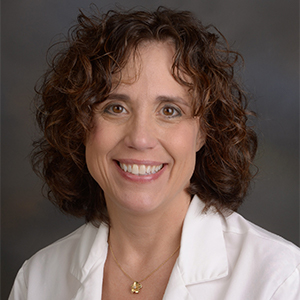
Cornea & Contact Lens | Liaisons: Suzanne Sherman and John Gialousakis
Dr. Sindt is a 1994 graduate of The Ohio State University College of Optometry. She completed a disease-based residency at the Cleveland VA Medical Center where she also did subspecialty rotations in low vision and advanced contact lens fitting. Dr Sindt joined the Faculty of the University of Iowa Department of Ophthalmology and Visual Sciences in 1995, where she is a Professor of Clinical Ophthalmology and Director of the Contact Lens Service. Dr Sindt is a Fellow in the American Academy of Optometry. She is the 2010-2011 AOA CLCS Chair, Past President of Women of Vision and the Past President and co-founder of the Scleral Lens Education Society
Cornea & Contact Lens | Liaisons: Suzanne Sherman and John Gialousakis
Dr. Barnett is the principal optometrist at the University of California, Davis Eye Center in Sacramento. She is an internationally recognized key opinion leader, specializing in anterior segment disease and specialty contact lenses. She is a Fellow of the American Academy of Optometry, a Diplomate of the American Board of Certification in Medical Optometry, a Fellow of the British Contact Lens Association and serves on the Board of the American Optometric Association Cornea and Contact Lens Council, Women in Optometry, Gas Permeable Lens Institute and is Past President of The Scleral Lens Education Society. Drs. Melissa Barnett and Lynette Johns edited the book Contemporary Scleral Lenses: Theory and Application with the unique perspectives and contributions of international experts. Dr. Barnett was awarded the inaugural Theia Award for Excellence for Mentoring by Women in Optometry. In her spare time she enjoys yoga, hiking and spending time with her family, Todd Erickson, also an optometrist, and two sons, Alex and Drew.
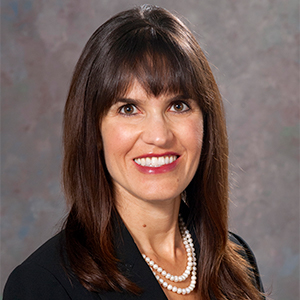

Glaucoma | Liaison: Jessica Steen
Dr. Fingeret is Chief of the Optometry Section, Brooklyn/St. Albans Campus, Department of Veterans Administration New York Harbor Health Care System. Dr. Fingeret is a Clinical Professor at the State University of New York, College of Optometry and a fellow of the American Academy of Optometry. Dr. Fingeret sits on the Board of Directors of the Glaucoma Foundation and is a member of the American Glaucoma Society, the American Optometric Association, and the National Academies of Practice. Dr. Fingeret is a founding member and past-president of the Optometric Glaucoma Society and currently the president of the Optometric Glaucoma Foundation. He is the recipient of the 2013 Vincent Ellerbrock Clinician Educator Award from the American Academy of Optometry, 2008 Distinguished Service Award Optometric Glaucoma Society, 2005 Carel C. Koch Memorial Medal from the American Academy of Optometry, 1999 AMSUS Federal Service Optometrist of the Year award and 1996 Otsuka Glaucoma Educators Award from the American Academy of Optometry. Dr. Fingeret sits on the annual meeting program committee, Glaucoma Section, Association in Vision and Ophthalmology (ARVO), the editorial boards for the Journal of Glaucoma, International Glaucoma Review, Glaucoma Today, Primary Care Optometry News, Optometry Times and Review of Optometry and has authored numerous articles and co-authored the texts “Atlas of Primary Eyecare Procedures” and “Primary Care of the Glaucomas“.
Low Vision | Liaison: Erin Kenny
Dr. Marinoff is an associate clinical professor and Low Vision Rehabilitation residency supervisor at SUNY College of Optometry. She completed a residency in Low Vision Rehabilitation at Southern College of Optometry and is a graduate of SUNY College of Optometry. She is currently the chair of the ASCO Low Vision Educator’s Special Interest Group. She is a Fellow of the American Academy of Optometry (AAO) and a Diplomate of the American Board of Optometry (ABO). She serves as co-chair of the Low Vision Committee of the New York State Optometric Association (NYSOA). She has lectured both nationally and internationally on topics related to Low Vision Rehabilitation.
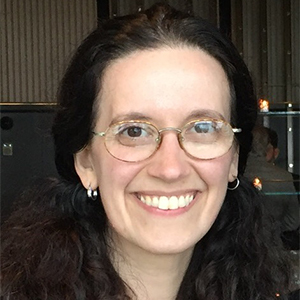
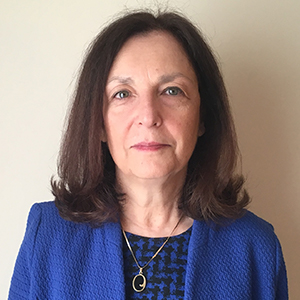
Low Vision | Liaison: Erin Kenny
Dr. Appel graduated from the Pennsylvania College of Optometry where she completed her residency in low vision rehabilitation. She has been a clinical educator at the William Feinbloom Vision Rehabilitation Center since 1981. She is currently the Director of Pediatric Services and Co-Director of the Special Populations Assessment and Rehabilitation Center at the William Feinbloom Vision Rehabilitation Center of Salus University. She also serves as the coordinator for the Pennsylvania College of Optometry’s low vision rehabilitation residency. Dr. Appel is a Diplomate in Low Vision Rehabilitation, which she received from the American Academy of Optometry. As a member of the ASCO Low Vision Educators SIG, she contributed to the SIG’s development of Low Vision Rehabilitation Entry Level and Advanced Level Competencies and Learning Objectives for Schools and Colleges of Optometry. She has published and lectured extensively on topics related to low vision rehabilitation as well as vision evaluations of children with physical and developmental disabilities.
Myopia Control
Dr. Cooper received his O.D from Pennsylvania College of Optometry in 1971 and an M.S. in Physiological Optics from State University of New York in 1978. He completed a residency in Binocular Vision and Visual Perception in 1971 and subsequently was appointed the co-chairman of the vision therapy department. He taught at the SUNY College of Optometry from 1971 to 2015, where he obtained the rank of Clinical Professor. He taught in both the professional program and the residency program strabismus and amblyopia diagnosis and treatment. In addition, he taught in the primary care department, vision therapy department and ocular disease departments. He has authored over 60 papers dealing with anomalies of binocular vision, stereopsis, and glaucoma. He served as the principal investigator of two NIH/NEI clinical trials. Currently, he has two offices consisting of 4 optometrists and 3 ophthalmologists in Manhattan and Brooklyn. He is the inventor of both Computer Orthoptics and the HTS programs which were used in the CITT clinical trials. He is on the advisory boards of VTI, Alcon, Treehouse, Computer Orthoptics, and Magic Leap.
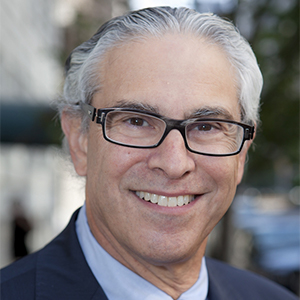

Neuro-Optometry | Liaison: Ashley Maglione
Dr. Modica is a graduate of the Pennsylvania College of Optometry. She completed a Residency in Primary Care at The Eye Institute of The Pennsylvania College of Optometry. This was followed by a two year Fellowship in Neuro-Ophthalmic Disease at the same facility. She is currently an Associate Clinical Professor at The State University of New York College of Optometry where she directs care in the Neuro-Ocular Disease Service and teaches didactic coursework in Neuro-Ophthalmic Disease and Neuroanatomy. She has lectured nationally and internationally on topics related to her clinical emphasis in neuro-ophthalmic disorders and has published “Neuro-Ophthalmic System: Clinical Procedures” by Butterworth-Heinemann. She is an active Fellow of the American Academy of Optometry and currently serves as the Vice Chair for the Special Interest Group “Neuro-Ophthalmic Disorders in Optometry”.
Ocular Surface Disease | Liaison: Lucy Kehinde
Dr. Hauser received her Doctor of Optometry degree in 2001 from Southern College of Optometry. She completed a postgraduate residency in Primary Care Optometry at the Southern College of Optometry in 2003. Prior to joining the SCO faculty as Associate Professor, Dr. Hauser served as Clinical Director and Research Coordinator at an ophthalmology referral center in Memphis, Tennessee. Dr. Hauser has authored many articles focusing on the management and treatment of ocular surface disease, the anterior segment and practice management. She has been an invited speaker across the United States and internationally. Dr. Hauser servers as Clinical Development Consultant at TearWell: Advanced Dry Eye Treatment Center and sees patients The Eye Center at Southern College of Optometry. She is, also, founder of DryEyeCoach.com, the ultimate ocular surface disease education hub and Signal Ophthalmic Consulting. The site offers peer-to-peer direction from key opinion leads in eye care. Dr. Hauser serves on the boards of Bruder Medical, TearLab, BlephEx, Paragon BioTeck and Science Based Health. She, also, serves on the editorial board of Primary Care Optometric News, and is the dry eye columnist for Optometric Management.
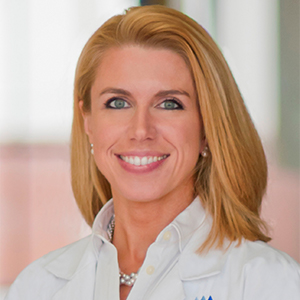
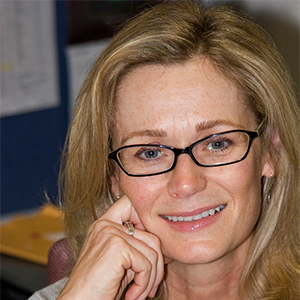
Pediatrics | Liaison: Jenelle Mallios
A Professor at SCCO/MBKU, Dr. Cotter teaches in the classroom and clinic, and conducts clinical research in the areas of strabismus, amblyopia, convergence insufficiency, and childhood refractive error. Sue is the co-Chair of the Pediatric Eye Disease Investigator Group (PEDIG), an NEI-funded clinical research network of 300+ pediatric ophthalmologists and optometrists who perform clinical investigations related to pediatric eye conditions. She has served in leadership positions for the following NEI-funded studies: MEPEDS, CLEERE, CITT, and CITT-ART. Sue serves on the Board of Directors of the American Academy of Optometry where she is a Diplomate and past Chair of the BVPPO Section, and on the Scientific Bureau of the World Society of Pediatric Ophthalmology and Strabismus (WSPOS). She is a former Ezell fellow and recipient of the Glenn A. Fry Medal for Distinguished Achievements in Vision Research from the OSU College of Optometry. Sue is editor of the textbook Clinical Applications of Prisms and lectures internationally in the areas of pediatric eye care and binocular vision.
Kimberly A. Lambreghts, RN, OD, FAAO
Primary Care | Liaison: Shaleen Ragha
Dr. Lambreghts graduated from Pace University with an RN and a Bachelors in Biology. She worked as an orthopedic surgical nurse before entering SUNY Optometry. After graduating, she completed a dual residency in rehabilitative and primary care optometry at the Northport VAMC. She served as a VA staff optometrist and was an associate in a private practice prior to arriving at the UH College of Optometry. Currently she is a Clinical Professor and is the Associate Dean for Professional Studies. She serves as a fourth year clinical attending in the UH Ambulatory Surgical Center and teaches in the didactic/ laboratory portions of the curriculum. Dr. Lambreghts publications include abstracts, journal articles as well as a book chapter in Clinical Ocular Pharmacology. Dr. Lambreghts has received numerous awards including the Texas Optometric Association Educator of the year, the J. Davis Armistead Teaching award and the Texas Optometric Presidential award.
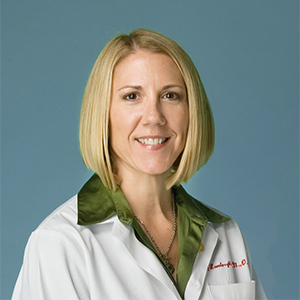

Primary Care | Liaison: Shaleen Ragha
Dr. Mani received her Doctor of Optometry degree at the Pennsylvania College of Optometry at Salus University in 2003, after which she completed a residency in Ocular Disease at SUNY College of Optometry. Following her residency, Dr. Mani joined the New England College of Optometry in Boston, MA as a full-time clinical assistant professor. During this time, she also served as Director of Eye Care Services at the South Boston Community Health Center, a multi-disciplinary health care facility for the medically underserved population. In 2007, Dr. Mani received the Carroll Martus Award for excellence in clinical teaching at NECO. Since 2008, Dr. Mani has been back at her alma mater, PCOSU, and is currently serving as the Director of Off-Campus Residency Programs. She is also a staff optometrist at Monmouth Eye Care in Tinton Falls, NJ. Aside from primary eye care, her interests include ocular disease and community health.
Primary Care | Liaison: Shaleen Ragha
Dr. McLeod is an Associate Professor at the Illinois College of Optometry (ICO) and the Primary Care & Ocular Disease Residency Program Coordinator. She received her optometric degree from ICO and completed a residency in ocular disease and special testing at State University of New York College of Optometry. Dr. McLeod is an attending optometrist in the Primary Care, Advance Care, and Urgent Care Services of the Illinois Eye Institute and teaches in the optometry methods sequence.


Public Health | Liaison: Diane Russo
Dr. Leasher is Professor of Public Health and Director of Community Outreach for the Nova Southeastern University College of Optometry in Florida. She spearheads community health education and promotion projects in visual health and teaches courses in community health promotion, health systems, policy, economics, international development, and ethics. She has extensive experience in international development in the eye care sector with the UNESCO Chair in Visual Health and Development, International Agency to Prevent Blindness (IAPB) Council of Members and with the World Council of Optometry. Her research interests surround program evaluation and global access to quality vision care; and she published 50+ prominent papers on the global burden/epidemiology as the regional coordinator for the Americas in the Vision Loss Expert Group for the Global Burden of Disease, Risk Factors and Injuries Study. She currently serves the planning committee for the National Eye Institute National Eye Health Education Program, and is a member of several special interest groups for the Association of Schools and Colleges of Optometry. She is a Fellow of the American Academy of Optometry and the National Academy of Practice in Optometry and she has held various leadership positions with a variety of optometric organizations.
Public Health | Liaison: Diane Russo
Dr. Block received her degree from Illinois College of Optometry (1981), and completed a Pediatric Residency. In 1988, she completed her M.Ed. and 2015 her MPH. She has been a consultant to Special Olympics since 1995 and was instrumental in developing the vision program protocols used globally. Her interests lie in eye care for children, persons with disabilities, access to eye care for underserved populations, vision therapy and visually related learning problems. She has been the Medical Director for the Illinois Eye Institute at the Princeton Elementary School –a school-based vision clinic serving Chicago Public Schools since 2011. Dr. Block has authored numerous articles and conducted presentations nationally and internationally including the National Academy of Science, Engineering and Medicine. She is member of the AAO (Fellow, Diplomate, PHEV, COVD (Fellow), AOA, NAPO, ARVO and sits on the Board of Prevent Blindness. She is a Co-chair of the National Center for Children’s Vision and Eye Health (HRSA), Chair, Public Health Committee, World Council of Optometry and is past Chair for NAPO. She sits on the Education Board for APHA and ICO Alumni Council.

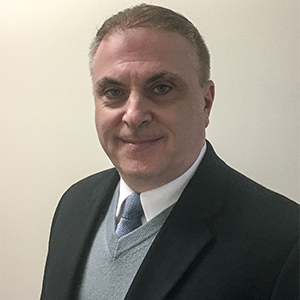
Retina | Liaison: Kimberley Poirier-Schmidt
Dr. Pelino is a 1994 graduate of the Pennsylvania College of Optometry. In 1995 Dr. Pelino completed a PCO ocular disease residency at the John F. Kennedy Memorial Hospital in Philadelphia, where he concentrated in retina and neuro-ophthalmic disease. Dr. Pelino is currently a full time Assistant Professor at the Pennsylvania College of Optometry and is director of the optometric retina service at The Eye Institute. He recently completed a one year retinal fellowship emphasizing medical and surgical treatments under the direction of vitreo-retinal surgeons at Crozier-Chester and Riddle Memorial Hospitals in suburban Philadelphia. Dr. Pelino is a fellow in the American Academy of Optometry. He regularly lectures in domestic and international programs.
Cornea
Dr. Suh, the Miranda Wong Tang Associate Professor of Clinical Ophthalmology, is the Division Director of the Cornea Service and runs the Laser Vision Center and cornea fellowship program at Columbia University’s Harkness Eye Institute. Her surgical specialties include cataract surgery and intraocular lenses, corneal transplantation, and laser vision correction. She received her undergraduate degree from MIT and her medical degree from the NYU School of Medicine. She completed her ophthalmology residency at the Wilmer Eye Institute at the Johns Hopkins Medical Center and received her fellowship training at the Bascom Palmer Eye Institute at the University of Miami Hospitals, where she was a faculty member in the Division of Cornea and Refractive Surgery. Her clinical research interests are in keratoconus early detection and treatments, namely corneal collagen crosslinking (CXL). She was the principal investigator for the CXL trial for the treatment of keratoconus and post-refractive surgery ectasia at Columbia University. She is a busy cataract surgeon providing the latest in laser-assisted cataract surgery and in modern intraocular lens implantation. Trained also as a corneal sub-specialist, she specializes in selective corneal transplantation, also known as endothelial keratoplasty, which has dramatically changed the face of surgery for corneal diseases. Finally, as the main refractive surgeon of the division, she provides the latest in laser vision correction with LASIK and PRK.

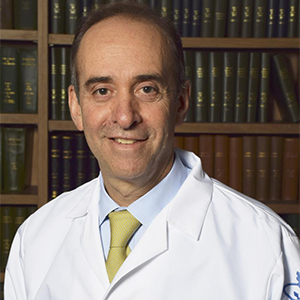
Glaucoma
Dr. Jeffrey M. Liebmann graduated from Boston University School of Medicine, completed his ophthalmology residency at the State University of New York/Downstate Medical Center, and his glaucoma fellowship at the New York Eye and Ear Infirmary. Dr. Liebmann serves as Shirlee and Bernard Brown Professor, Vice-Chair, and Director of the Glaucoma Division of the Department Ophthalmology at Columbia University Medical Center. He is a fellow of the American Academy of Ophthalmology, Association for Research in Vision and Ophthalmology and American College of Surgeons. Dr. Liebmann is currently Editor-in-Chief of Journal of Glaucoma, a member of the Board of Governors of the World Glaucoma Association and Board of Directors of The Glaucoma Foundation and Secretary-Treasurer of the New York Glaucoma Society. Dr. Liebmann is a pastPresident of the World Glaucoma Association, American Glaucoma Society, and the New York Society for Clinical Ophthalmology and was co-founder of the New York Glaucoma Research Institute, the American Glaucoma Society Foundation and ASCRS Glaucoma Day. In addition to maintaining a busy tertiary-care referral practice in New York City, Dr. Liebmann is Principal Investigator for the NIH African Descent and Glaucoma Evaluation Study (ADAGES) and Ocular Hypertension Treatment Study (OHTS III) at Columbia University and is the author and/or coauthor of more than 1000 medical and scientific papers, book chapters, and abstracts. He has lectured widely in the United States and abroad on glaucoma diagnosis and management. His current main areas of research interest include the causes of glaucoma, glaucoma progression, glaucoma surgery, ocular imaging, and neuroprotection.
Pediatrics
Dr. Brooks received his undergraduate degree (summa cum laude) in biochemistry from Dartmouth College in 1984 and his medical degree from the Johns Hopkins University School of Medicine in 1988. He completed a residency in ophthalmology at the University of Southern California/Doheny Eye Institute, followed by a fellowship in pediatric ophthalmology and adult strabismus at the University of Michigan/Kellogg Eye Center. In 1994 he joined the faculty of the Medical College of Georgia where he attained the rank of Associate Professor with tenure. He also founded and owned a private practice in ophthalmology in Augusta, GA for many years before taking his current position at Columbia University Medical Center. Dr. Brooks’ primary research interests have been in ROP (clinical and basic science) and complex ocular dysmotility following orbital trauma and scarring. He has published over 90 original scientific papers and abstracts, and written several case reports and book chapters, as well as a book on the fundamentals of ophthalmic suturing. At Columbia, Dr. Brooks is the division chief for pediatric ophthalmology, directs residency training in pediatric ophthalmology, the ROP screening program at the Morgan Stanley Children’s Hospital of New York, and runs a tertiary practice in pediatric ophthalmology and strabismus. He is also working to develop a new program that seeks to unite detailed phenotypic analysis with genetic and proteomic data for children and families with vision threatening diseases, and couple this information with clinical and scientific research, clinical trials, and genetic counseling. This effort will integrate with the precision medicine initiatives underway at Columbia, and will involve the coordinated efforts of clinicians, research scientists, and genetic counselors.

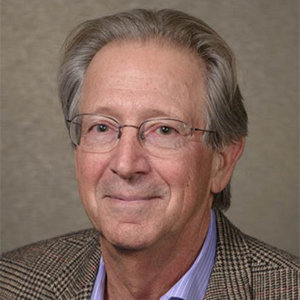
Behavioral, Electrophysiological, & Imaging Techniques
Dr. Hood, the James F. Bender Professor of Psychology and Professor of Ophthalmic Science (in Ophthalmology), has been a member of the Columbia faculty since 1969. He holds a B.A. from Harpur College of the State University of New York, M.Sc. and Ph.D. (1970) degrees from Brown University and an honorary degree from Smith College (2000) and Brown University (2017). From 1982 to 1987, he served as Vice President for the Arts and Sciences at Columbia University. He is an elected Fellow of the American Academy of Arts and Sciences, as well as the Society of Experimental Psychologists and the Optical Society of America. He received an Alcon Research Institute Award and the Research Excellence Award from the Optometric Glaucoma Society, in 2014.
He is currently Editor-in-Chief of Investigative Ophthalmology and Visual Science, having served on its Board since 1992. He has also served on the Editorial Boards of Journal of Vision (2000-2012), Documenta Ophthalmologica (since 2004), Translational Vision Science & Technology (2011- 2017); Vision Research (2004 to 2013) and Journal of Glaucoma (2017-present).
Don Hood’s research deals with the behavior, physiology and anatomy of the human visual system. While some of his over 300 publications deal with issues of the basic neuroscience of vision, most of his work over the last 25 years has concerned research on diseases of the retina and optic nerve. He has had continuous grant support from NIH/NEI for over 45 years.
Clinical Trials & IRB
Dr. De Moraes is an Associate Professor and the Medical Director of Clinical Trials at the Department of Ophthalmology at Columbia University Medical Center, New York, NY. He obtained his MD degree at University of Sao Paulo, Brazil, and completed Ophthalmology Residency and Glaucoma Fellowship at the same institution. He later completed his Glaucoma Fellowship at the New York Eye and Ear Infirmary under the supervision of Robert Ritch, MD and Jeffrey Liebmann, MD. Dr. De Moraes later pursued a Masters of Public Health degree at the Mailman School of Public Health at Columbia University, with an emphasis on Biostatistics. He has been a collaborator at the Hood Vision Lab with Donald Hood, PhD for the past 10 years. He is a glaucoma attending at Harlem Hospital (affiliated with Columbia University) and the Edward S. Harkness Eye Institute at Columbia University Medical Center, New York.
His primary research interests are risk factors for glaucoma progression and novel techniques for glaucoma diagnosis, monitoring, and treatment. He was Principal Investigator on an NEI/NIH funded project investigating progression of glaucomatous damage to the macula from 2015 to 2018. He is a member of Columbia University’s Institutional Review Board (IRB). Dr. De Moraes recently co-chaired two sections of the World Glaucoma Association’s Consensus Meetings on Glaucoma Diagnosis and Progression.
Dr. De Moraes is a member of ARVO’s Publication Committee, co-chair of the Associate Advisory Board of the World Glaucoma Association, and past member of the Education and Guidelines Committee of the International Council of Ophthalmology (ICO). He is a member of the Program Committee of the American Glaucoma Society. Dr. De Moraes was presented the Achievement Award of the American Academy of Ophthalmology (AAO) in 2017. Dr. De Moraes has published 150 papers in peer-reviewed, Pubmed-indexed journals. He serves in the editorial boards of the following journals: Translational Vision Science and Technology (ARVO); Clinical and Experimental Ophthalmology (Royal Australian and New Zealand College of Ophthalmologists); and Journal of Glaucoma (World Glaucoma Association). He is a member of the American Academy of Ophthalmology’s Subcommittee on Update on General Medicine, (AAO).
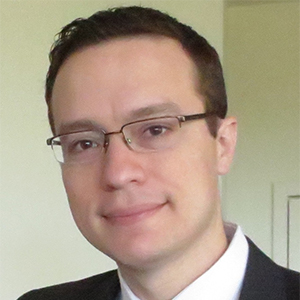

Refractive Development
Dr. Tkatchenko pursues research in areas of the identification and characterization of microRNAs and microRNA- regulated signaling pathways that control refractive eye development and the development of myopia. Dr. Tkatchenko was initially trained in medical and molecular biology, and then extended his expertise to genetics, transgenic mouse technology, large-scale gene expression profiling, bioinformatics, and visual neuroscience during postdoctoral studies. He studied molecular mechanisms underlying refractive eye development using animal models and genetic approaches for more than 18 years and have made several unique contributions to the field, which include the development of a mouse model of myopia and the application of systems genetics approaches to the study of myopia. Dr. latest work in systems genetics of myopia led to the identification of the APLP2 gene, which was the first experimentally confirmed gene causing myopia in children. We also recently combined systems genetics approaches and the marmoset model of myopia to discover that refractive eye development is regulated by the bidirectional mechanism which involves active stimulation of eye growth by negative defocus and active suppression of eye growth by positive defocus via two different genetic networks in the retina. Most recently, we performed a large-scale genetic study in the collaborative cross progenitor strains of mice and two human cohorts, which identified several dozen new pathways and over 800 new genes involved in refractive eye development and the development of myopia in mice and humans. Thus, we demonstrated that the systems genetics approach can identify signaling pathways responsible for gene-environment interaction in refractive eye development and showed that gene-targeted mouse models can be used to study signaling underlying refractive development. The current application builds logically on my recent work and my previous training and experience. My recent administrative experience as a PI and co-investigator of several NIH-funded grants also attests to my ability to meet the administrative needs of the proposed project.
Powered by The Michigan Contact Lens Specialists